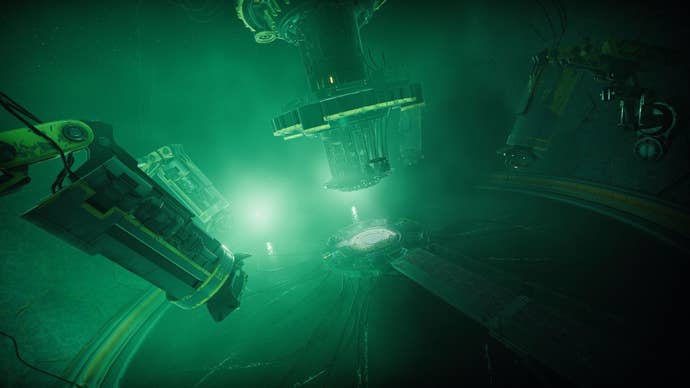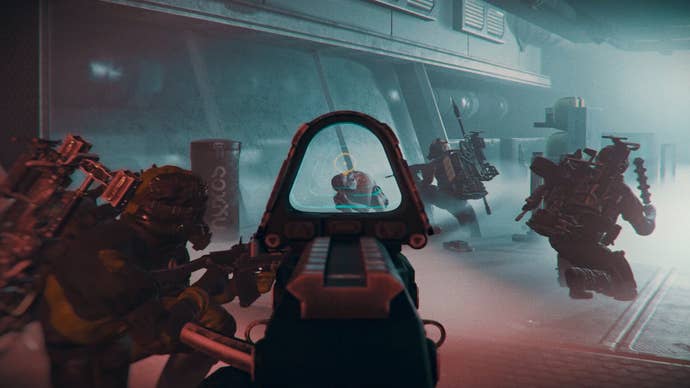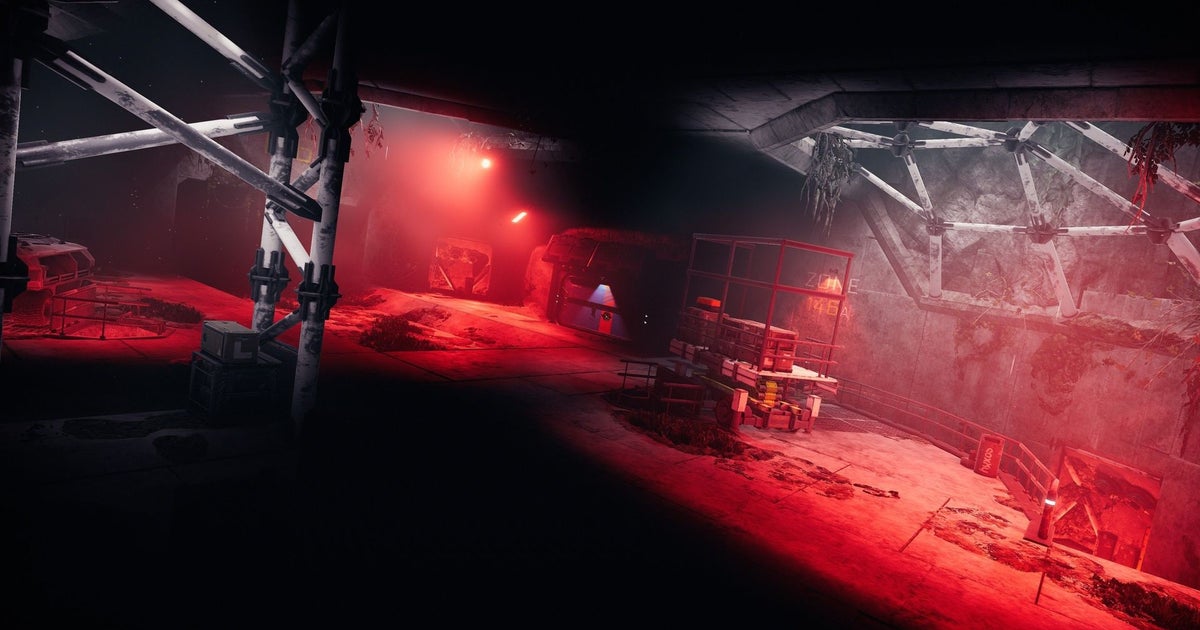Sweden-based developer 10 Chambers has only recently released a trailer for Den of Wolves, its long-awaited attempt to break into the heist genre of shooter. But as one journey starts, another comes to an end. GTFO, with its dramatically different tone from the robbery roots and future of the studio, is receiving its final update.
A farewell update aiming to wrap up loose ends, GTFO’s [insert update name] will be re-adding content that has been previously phased out in typical live service fashion. There will of course be a reality-bending narrative conclusion, and a selection of challenging closing missions for fans to throw themselves at. According to 10 Chambers co-founder and GTFO narrative designer Simon Viklund, it’s a game they had to make.
“It couldn’t have turned out any other way” Viklund recounts. “Even though I know there were hundreds of darlings we had to kill while making this game, as we were such a small team with limited budget and time. Now that we’ve come to peace with the fact that this is the last update, especially narratively, it feels great. Great for it to live on Steam now and be what I believe is a fantastic product considering the circumstances.”
10 Chambers, as the name implies, was first formed by a core staff of ten developers. Not all of those were even working on the game directly, but it’s from this small team that Viklund and various other veteran Swedish devs that GTFO bubbled forth. As GTFO grew, so has 10 Chambers, as it scaled up to take on larger projects like Den of Wolves.
With roughly four years since GTFO was released, Viklund believes the team has learned a lot. “There’s a lot. Early Access was huge for us. We had a very positive experience with that, and putting GTFO in the hands of players earlier than we otherwise would have is so much more enjoyable. Useful too, thanks to the early feedback.”
Beyond learning from feedback to GTFO, Viklund also states that GTFO has helped the studio with its confidence.“Confidence in our ability to expand upon Co-op mechanics, storytelling, our ability to tell a story in this kind of multiplayer game. Then of course there were the new challenges with building a company and passing that confidence onto new people joining. It was good to have the founders and now-directors have that confidence. We can look at GTFO and say ‘we could pull that off, so we can go to the next level which is Den of Wolves’.”

It’s clear that Viklund at least has a positive outlook on the conclusion of GTFO’s life as a live service game, but it begs the question: how did GTFO survive the past few years while other niche titles faded out? GTFO was never the most popular game – as a difficulty-focused team-based shooter with no in-game matchmaking, it is niche by nature.
“I don’t know, maybe there’s some lightning in a bottle here. Our passion shines through, but I don’t know what it is!” states Viklund. The game launched in 2019, a full year before Tencent acquired a major stake in the studio, but Viklund did not comment on how big a part Tencent’s investment played in the studio’s success.
Viklund also rejected the premise that many Payday fans crossed over to help prop the GTFO community up. In case you don’t know, both Simon Viklund and 10 Chambers CEO Ulf Andersson founded the company following time spent at Starbreeze. The two have a long-lasting history, working together at Grin in 2000, then Overkill Software in 2009 before it was acquired by Starbreeze. It was the team at Overkill that created the Payday series – perhaps the most popular PC heist shooter IP out there.
In spite of their personal legacy, and some shared DNA between GTFO and the Payday series, Viklund was firm in his belief that the game stood on its own two feet. “There’s something to be said about GTFO scratching an itch that other games aren’t. I don’t think it’s competing with other games as much as you’d think. The people playing GTFO are not playing the arcade-y broad-market stuff we don’t think.”

Viklund continues: “I don’t know for sure, I have no proof, but I don’t think the venn diagram of people playing GTFO and people playing Payday has that much crossover. Payday is so arcade-y and fast. In the beginning I was hoping with this game that we could steal a little bit of the audience from Payday. But once we started I began to understand the vision better, and how slow and methodical it is, I realised that this wasn’t for the same people.”
Maybe it was a mix of keeping the team small and growing slowly, realistic expectations for the relatively niche product, Tencent jumping in and some good ol’ fashioned quality gameplay that helped GTFO get the f*ck out of the past few years of live service hell unscathed. Either way, the game will end up in a rare spot for multiplayer games these days: feature complete and meaningfully concluded. Among other things, a firm foundation for future work.
This interview was conducted via a trip to the Ubisoft offices in Denmark, which was paid for and accommodated by PR

